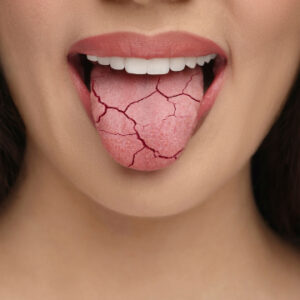 Santa Cruz, Scotts Valley CA
Santa Cruz, Scotts Valley CA
Dry mouth or xerostomia is a condition that can affect anyone of any age, although mouth breathers, the elderly, and individuals with certain medical conditions may experience dry mouth more than others. You might not pay too much attention to the issue if you experience frequent dry mouth, although it poses some serious oral health problems that should not be ignored. Today on our newest blog, find out why dry mouth should be a concern if you have it, what causes it, and how to deal with this common problem.
First, let’s look at the role of saliva and how it helps protect your oral health.
Saliva is like a natural mouthwash for your mouth. While it doesn’t replace your daily oral hygiene routine, it plays a significant role in protecting your teeth and gums as it “rinses” away food particles and bacteria that could lead to tooth decay or gum disease if left adhered to your teeth. Saliva also helps maintain a neutral pH inside the mouth so that oral bacteria do not grow in abundance.
Does this mean that oral bacteria are bad? Not exactly. Inside everyone’s mouths lives millions of bacteria. Some bacteria are good while other types of bacteria (the kind that causes cavities and gum disease) are harmful. Therefore, when dry mouth occurs, the harmful oral bacteria multiply at a faster rate and increase the risk of oral diseases.
Oral diseases that can be caused by dry mouth
The risk of tooth decay and gum disease increases in individuals with chronic dry mouth. This occurs as a result of food particles and bacteria that linger in the mouth too long, causing the oral bacteria to secrete acids that also adhere to your teeth. As a result, the acid erodes or eats away the dental enamel, forming cavities. Additionally, the same oral bacteria can cause the gum infection that results in gum disease or eventual jawbone loss and tooth loss, if left untreated.
Bad breath is also a common problem with dry mouth, due to the influx of oral bacteria, cavities, or the presence of gum disease. If you experience chronic dry mouth, you may notice that you have bad breath as well, even if you brush and floss daily. Chewing sugar-free mint flavored gum or mints may help, but only last short term until the dry mouth problem is addressed.
Mouth sores and oral thrush are also reported among individuals with chronic dry mouth. Saliva has natural antibacterial properties that can help heal mouth sores faster. Therefore, if you experience frequent mouth sores, ask your dentist if it could be caused by chronic dry mouth so that you can obtain the most effective treatment for your condition.
What causes dry mouth?
There are several things that can cause dry mouth, including certain medications, medical conditions like diabetes or Parkinson’s disease, as well as cancer treatments. Also, aging naturally results in dryer skin, hair, nails, and lower saliva production. Smoking, vaping, chewing tobacco, and overconsumption of alcohol can cause dry mouth.
How can I manage dry mouth?
Combat dry mouth by drinking enough water each day. Ensure that there is adequate humidity in the air by running a cool mist humidifier at night while sleeping. Additionally, limit your alcohol consumption, or avoid it entirely, and quit using tobacco, if possible. Whether you experience dry mouth or not, you should also visit the dentist at least once every six months for checkups and cleanings. The dentist can also prescribe natural and effective mouth rinses and solutions to help stimulate saliva flow without the risk of pharmaceuticals or harmful ingredients.
Help managing dry mouth in Scotts Valley, Los Gators, and Santa Cruz, California
Living with chronic dry mouth can be beyond irritating as it also increases the risk of certain oral health issues. Learn more about how to deal with chronic dry mouth or schedule an appointment by contacting Ebrahimian Integrative Dentistry at (831) 824-5111.



